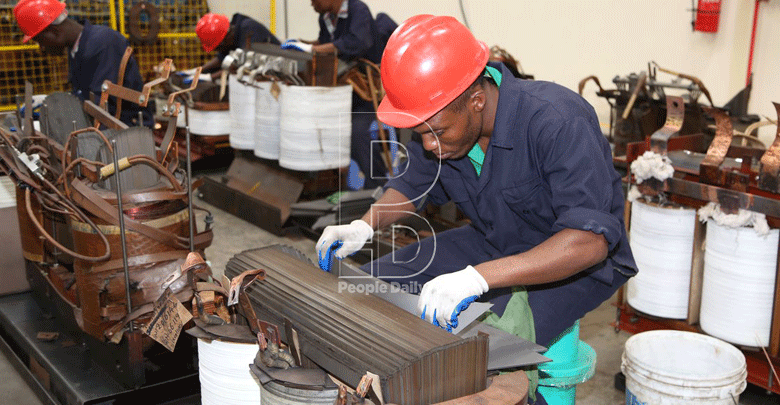Why Kenya risks being left behind by its peers

Kenya’s enviable ranking in the ease of doing business index globally is being eroded by a surging costs of doing business, a situation stakeholders warn will make the country be left behind by its peers in the global surge in Foreign Direct Investments (FDI) flows.
On the back of a sustained surge in cost of fuel and electricity, lobby groups and concerned Kenyans say the government should rein in on the high prices of enablers whose domino effect on sectors of the economy is becoming counterproductive.
Matters came to a head last week, when the Energy and Petroleum Regulatory Authority (EPRA) for the second month in a row, increased petroleum prices for super, diesel, and kerosene by Sh7.61, Sh5.75 and Kerosene Sh5.41 respectively.
Kenya Association of Manufacturers (KAM) said the substantial hike will have detrimental effects on the economy, since local manufacturers rely heavily on petrol and its products for energy, and to transport their products across the country.
Cost of fuel
“An increase in the cost of fuel shall have a ripple effect on the economy. It shall increase the cost of transport and production and eventually drive up the cost of finished goods.
Fuel price increase shall make the business environment harsher – it shall pile on the high amount of taxes, including the recently introduced minimum tax,” said KAM in a statement.
At a time the country Kenya needs more foreign direct investment, KAM is worried that Uganda, Tanzania and Ethiopia are attracting critical investment in the industry by lowering production and labour costs, Kenya seems to be upscaling, which is contrary to the Big Four agenda, and to creating sustainable and productive jobs for Kenyans.
The lobby group is urging the government to review the pricing formula per unit pricing, and reduce the amount of taxes charged, a prospect they say will reduce the cost of fuel, and drive the competitiveness of local industries.
In recent years, a number of international companies previously domiciled in Kenya have relocated to Uganda, Egypt and Ethiopia to take advantage of low production costs, where energy costs are $12 per kWh, $0.6 per kWh, and $0.4 kWh respectively, in comparison to Kenya’s $15kWh.
Concerns also abound whether government policy mandarins have a winning strategy to counter regional countries, especially landlocked countries like Ethiopia, that seem to be deliberately keeping their energy costs low to attract foreign manufacturers.
“Consider fuel and energy as critical factors for the success of any manufacturing dream. Simple economics is that you don’t heavily tax enablers, you only do that in a matured economy like Europe, yes Europe,” said said Muhammed Hersi, chairman of the Kenya Tourism Federation, in reference to the cheap power in Ethiopia.
Ethiopia’s industrial sector is attracting interest from China which is scouting for developing countries with an ideal climate for manufacturers.
“While we always like looking at Uganda and Tanzania, well both enjoy a lower pump price yet the former is even landlocked, and their oil has to go through Mombasa where I pay more as a motorist for the same litre of fuel.
Now a benchmark that has deliberately been ignored is our Northern Neighbour Ethiopia, guess what?
They pay less than Sh60 for a little of petrol while we pay Sh120+,” said the Kenya Tourism Federation chair.Kenya Transporters Association CEO Dennis Ombok warned have said members might normalise fuelling in neighbouring countries where the cost of fuel is cheaper compared to Kenya.
Cumulatively, it means prices of super and diesel per litre in February and March have risen by Sh15.80 and Sh11.26, making Kenya the most expensive in the region after Ethiopia, Tanzania and Uganda.
He said most Kenyan truck drivers are now preferring to fuel across the borders to circumvent the high cost of diesel, same as Kenyan residents who live near these border points.
Litre of diesel
Truckers transiting through Tanzania fill their tanks at either Namanga, Holili or Tarakea, where a litre of diesel goes for and equivalent of Sh90.36, compared to Sh107.66 in Kenya, while those transiting through Uganda at Busia or Malaba pay an equivalent of Sh109.35.
Petrol stations in Uganda are doing roaring business from Kenyan car owners, where a litre of super is cheaper, retailing at an equivalent of Sh116 compared to Sh122.81 in Kenya, same as Tanzania where a litre of petrol is Sh93.67. Additional reporting by Reuben Mwambingu.












